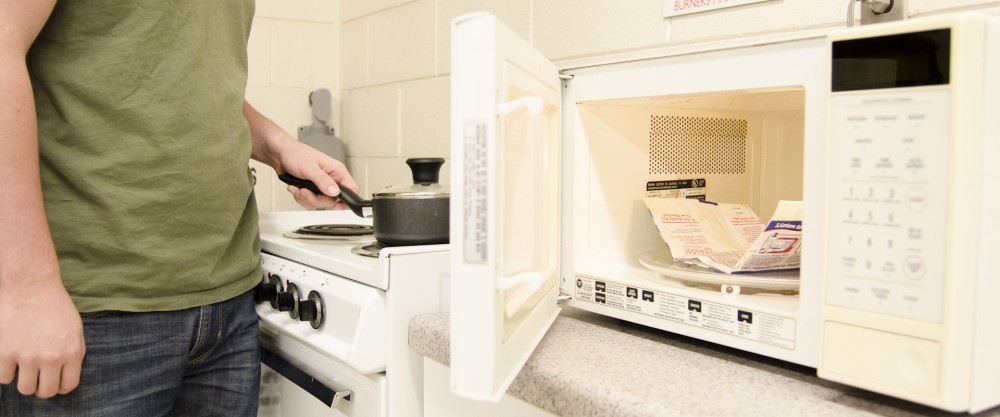GVPD asks students to be aware of fire alarm procedures

GVL/Bo Anderson
Jan 20, 2013
Fire alarms located throughout Grand Valley State University’s campus housing may go off for a variety of reasons so it is important to be aware of proper fire alarm procedures as well as preventative measures when living on campus.
Capt. Brandon DeHaan, assistant director of the Grand Valley Police Department, said that the police on campus will respond to nearly all fire alarms on campus.
“Burnt food is one of the largest causes of fire alarms,” DeHaan said. “Students don’t need to cook popcorn for 30 minutes.”
He added that at the beginning of each semester has one fire drill for all residential housing.
“We have these drills so that students know how to evacuate the building and know how to conduct themselves in the event of an actual fire,” DeHaan said.
He said that GVPD officers work with housing to identify dates and times for when the drill will be pulled in specific residential units.
“Bottom line, we ask that students are alert and aware,“ DeHaan said. “Whether its food products, shower steam, or hair care products, be responsible for yourself and the community.”
David Cox, safety manager of facilities services, said that cooking is the No. 1 cause of fire alarms going off.
Cox said that his occupational safety and health management students learn about fire safety procedures. In January, one of their projects is to prepare graphs on the different fire alarms that occurred for each semester as well as causes.
In 2008-2009, there were 368 total fire alarms in campus housing, and it dropped to 312 total fire alarms in 2009-2010. The OSH students are currently in the process of producing the data for the 2011-2012 school year.
He said that potential causes of fire alarms could be due to the following: cooking, hair dryer/iron, contractor, pull station, faculty detector, aerosol, steam/water, mechanical and miscellaneous/uknown.
Cox added that the Central Utility Building prints out where the fire is occurring and can often determine whether or not a fire department needs to be contacted. Public safety and maintenance are the first respondents when a fire alarm goes off.
While many fire alarms go off during the school year, the amount of actual fires are significantly lower.
According to the GVSU Fire Report for 2012 in Housing, there was one actual fire that occurred due to clothes hanging over the stove.
Within the Residential Services Guide of 2013-2013, there is a section on safety and security with fire procedures. These procedures include always exiting a building when a fire alarm sounds and dailing 911 immediately after recognizing a fire and following dispatch instructions. In a situation where there is a fire, always feel the room door before leaving a room – if it’s hot, do not open it; instead, open the window and signal for help instead. If the door is cold, leave the building through closest exit and once outside, proceed to the designates assembly area (away from the building and leave room for emergency vehicles) then wait for further instructions.
Students may not re-enter their building until notice is given from the Allendale Campus Police of Pew Campus.
“The biggest things I want to emphasize is that when cooking in the microwave, stay by the microwave, do not go away and wander with friends to set smoke alarm off, and follow the directions of the popcorn,” Cox said.
For more information of fire safety and statistics, go to www.gvsu.edu/facilitiesservices/fire-safety-clery-statistics-53.htm.
assistantnews@
lanthorn.com























